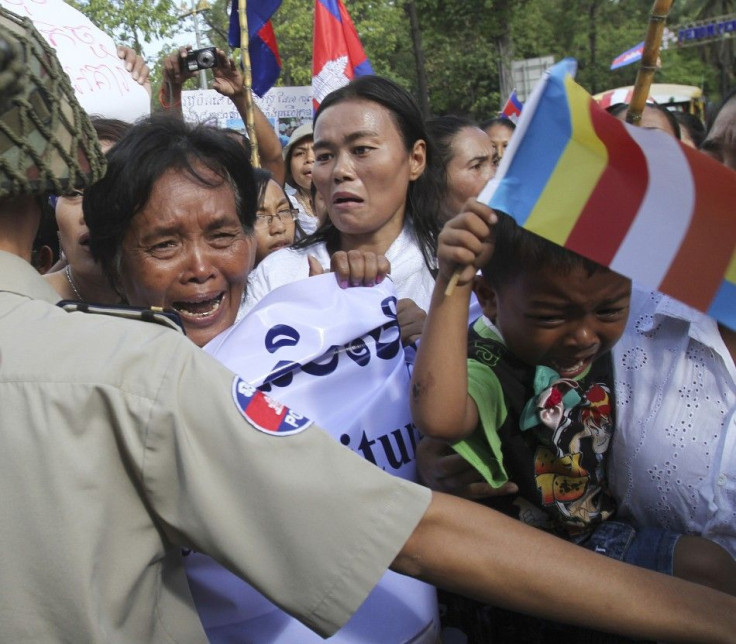International Women's Day Gets Political

It's not a holiday that's widely celebrated here in the United States, but International Women's Day is one of the rare events that is collectively observed around the world.
The global celebrations in 2012 -- a year that has already been permanently marked by social movements, elections and crises -- have taken a political and, in some cases sombre, tone in many countries.
In France, for example, where President Nicolas Sarkozy is fighting to win re-election, the day was used a campaign stop. Sarkozy's opponent, Socialist Francois Hollande shook hands at a maternity hospital, while feminist organizations used the holiday to hold rallies and debates, with hopes of applying pressure on both candidates to make gender equality part of their platforms.
Hollande has already responded, saying on Thursday that if elected he would establish a ministry of women’s rights and tighten sanctions political parties where women are underrepresented, according to France's The Connexion.
In the countries that arguably need to celebrate women the most -- places where violence against women and gender inequality are daily struggles -- the holiday reiterated the challenges to be overcome.
International Women's Day was controversial in Afghanistan, where President Hamid Karzai just endorsed an edict that says women are secondary” and can't interact with strange men in various social activities such as education, in bazaars, in offices and other aspects of life.
Rights activists have accused the president of selling out women in order to appease fundamental groups like the Taliban. The edict, which was issued by Afghan Ulema Council -- a scholarly body that discusses sharia law -- also suggests that women always wear “full Islamic hijab” and respect polygamy, according to The Telegraph.
“This move by the Ulema council drives Afghan women rights towards Talibanisation,” Afghanistan's first deputy speaker, Fawzia Koofi, told AFP. “Nobody has the right to interfere in women's rights, not even President Hamid Karzai.”
In another Islamic nation -- the United Arab Emirates -- women celebrated the progress they made over the past year. In the UAE women made up about 70 percent of the university graduates in 2011 and the country boats a number of female politicians and diplomats.
“Nothing pleased me more than seeing Emirati women assuming their role in the society and achieve their rightful position,. said President Shaikh Khalifa bin Zayed Al Nahyan, according to the UAE's Khaleej Times.
Nothing should hinder the march of women’s progress, women alike men have the right to assume the highest positions according to their abilities and qualifications.
In Chile, lawmakers will meet on Thursday for continued discussions on legalizing therapeutic abortion. Chile is one of six nations in the world that does not allow abortion under any circumstances, but Chilean journalist Catalina May sees it as a representative issue that speaks to the dearth of women in politics and the workforce in the Latin American country.
There were also protests and rallies in Cambodia, India, Serbia, Bangladesh and the Philippines, and in Mexico, photographers and reporters followed around female Luchador wrestlers and The Vampire Woman.
© Copyright IBTimes 2024. All rights reserved.




















